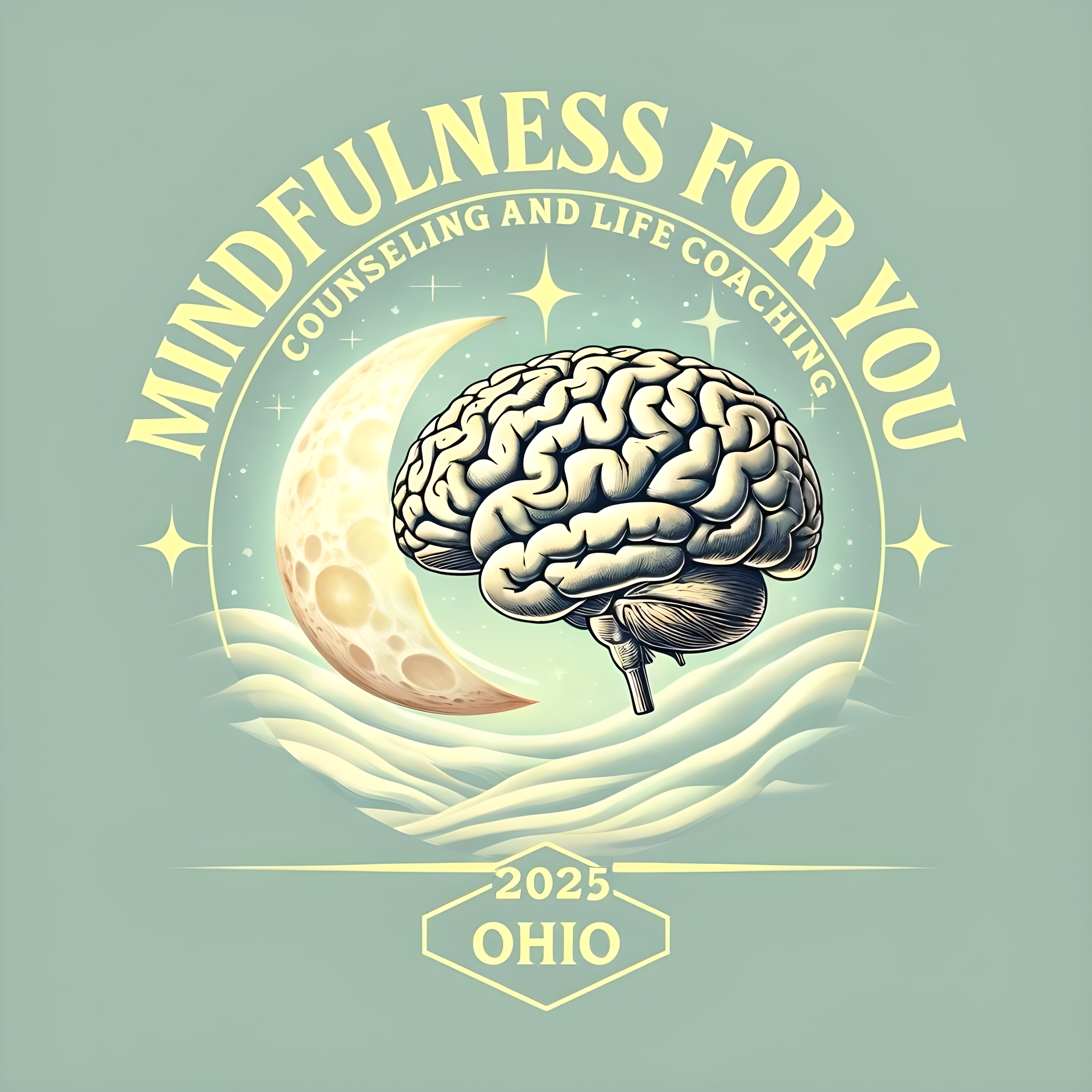
Your Mind's Best Friend
Ever felt like your brain's running a marathon while you're still in your pajamas?
Mindfulness For You: Counseling & Life Coaching gets it...
We're your mental wellness pit crew, offering both in-person sessions (for those who need a physical shoulder to lean on) and telehealth options (because sometimes therapy is best enjoyed from the comfort of your own home).
Our team of credentialed mind-whisperers specializes in everything from taming the anxiety monsters to untangling relationship knots, even with hypnotherapy that helps you access those dusty corners of your subconscious without the spring cleaning.
Simply book a free chat with us, and we'll match you with a therapist who clicks with your particular flavor of human experience.
We offer accommodating payment options and squeeze into your calendar with evening and weekend appointments. Whether you prefer the comforting embrace of our office armchairs or the convenience of opening up from your favorite spot on the couch, Mindfulness For You Counseling & Life Coaching creates a space where it's perfectly acceptable to ugly-cry, have breakthrough moments, or just figure out why you keep dating people who remind you of your high school math teacher.
Your mind deserves the VIP treatment—we're just the bouncers letting the good stuff in !!!
Individual Telehealth Therapy
Tailored sessions to help you navigate life's challenges, available in Ohio only. Let's tackle anxiety, depression, and more together!
Life Coaching
Empowering you to achieve your goals, no matter where you are in the U.S. Let's unlock your potential!
Quick Check-ins
Need a little boost? Our brief sessions keep you on track between regular appointments. Perfect for established clients!
Sliding Pay Scale
Affordable options to ensure everyone can access mental health support. Because wellness shouldn't break the bank!
Flexible Scheduling
Evenings and weekends available! We work around your busy life to make mental health a priority.
Free Consultations
Not sure where to start? Enjoy a complimentary 15-minute chat to see how we can help you thrive!
Get in Touch with Us
Ready to take the next step in your mental health journey? Our team at Mindfulness For You: Counseling & Life Coaching is here to help!
Whether you have questions about our services or want to schedule your free 15-minute consultation, reaching out is easy.
Simply fill out the contact form on our website, or give us a call. We look forward to connecting with you and supporting your path to wellness!
